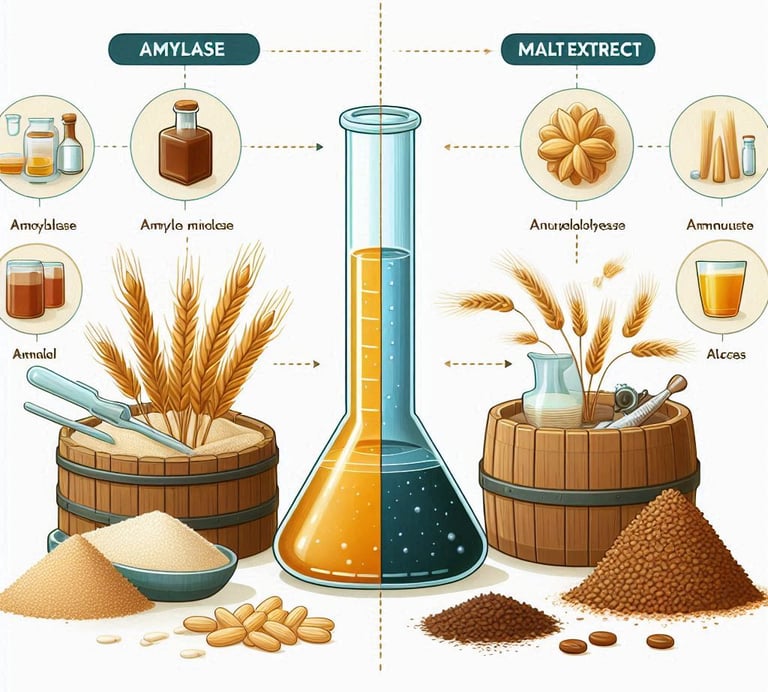
Baking Enzyme Series 1: Amylase
Amylases, particularly fungal alpha-amylase, convert starch into fermentable sugar and is a better alternative to malted barley flour due to its quality consistency
2 min read


Malt Extract/Malted Barley Flour vs Amylase
With the rise of clean label bakery products, malt extract—also known as malted barley flour, barley malt, or diastatic malt—frequently appears on ingredient lists. While the name might sound familiar, its purpose often remains a mystery. In truth, it is a valuable "secret ingredient" for savvy bakers to promote a strong rise, great texture, and lovely brown crust. Malt extract enhances flavor by adding a rich, malty sweetness that elevates flavors, and provides food to yeast quicker and better fermentation and helps retain moisture, resulting in a softer crumb. Additionally, it enhances crust color by promoting the Maillard reaction, creating a beautifully browned crust and golden hue in baked goods, particularly bread.
Malt extract is derived from barley that undergoes a malting process. The primary active ingredients are enzymes, particularly amylase, which break down starches into fermentable sugars, like maltose. This is the secret little known to consumers and even many bakers. Malt extract lacking sufficient amylase content doesn't enhance fermentation or browning but primarily serves to add sweetness and malty flavor. Falling number (FN) is a key indicator of alpha-amylase activity in wheat flour—and it has a significant impact on dough performance and bread quality.
Malt extract, despite its many benefits, is not without its limitations. The primary challenge lies in is the level and efficacy of enzymes, particularly amylase, are difficult to standardize due to process variations. Significant variations between manufacturers or even batches can pose considerable challenges, making formulation complex and unpredictable. If used improperly, it leads to a gummy texture, overly active fermentation, and potentially a poor rise or a sticky dough. In addition, the process of malting barley is highly water and energy intensive.
Recently major companies (for example, King Arthur Baking Company) begin to switch from barley malt to the amylase enzyme. The key advantage of amylase lies in its ability to be standardized across the industry, ensuring consistent dosage and reliable performance once the formulation has been fine-tuned. In addition, amylase’s cost-in-use is generally much lower than malt extract.
Amylase is a digestive enzyme produced by either fungi or bacteria. The most desired amylase in baking industry is fungal alpha amylase. Amylase, when used as a processing aid in food, generally doesn't require labeling or it can be simply labeled as “enzyme”.
The increasing demand from health-conscious consumers has led to the development of enzyme-based baking improvers as clean label alternatives to chemical additives. Sunson offers a full range of baking enzyme which help improve flour performance.

